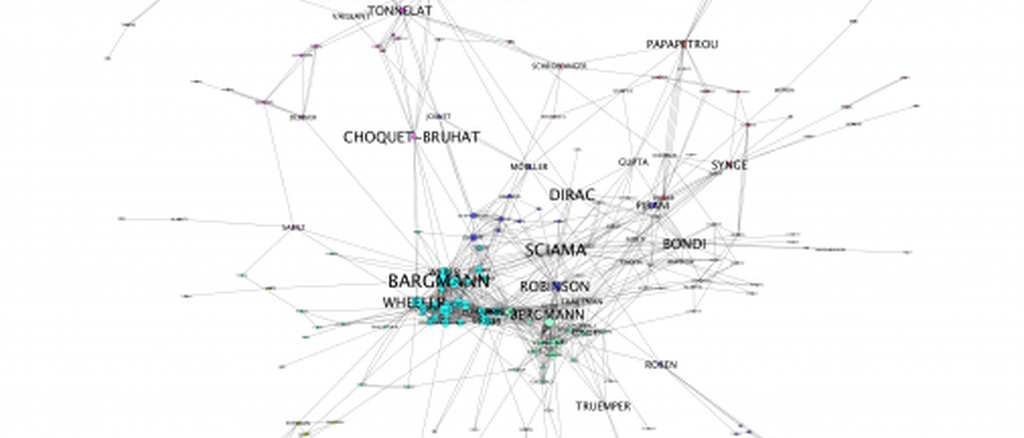Case studies
The member of the research team are involved in several pilot projects aimed at analysing network dynamics.
A systematic overview of the status of these projects can be found in Dirk Wintergrün's dissertation (Wintergrün 2019). There, the theoretical framework of the socio-epistemic networks as well as a schema for implementing it in concrete working environments are presented and developed.
In (Lalli 2020) the framework is applied to a case study on the history of GRT. On the basis of network-theoretical analyses, new insights into the formation of GRT as a research field have been obtained. We showed that the inclusion of more complex network structures offer more precise and robust statements about the temporal process of the establishment of the research field than purely bibliometric methods.
A more elaborated framework of embedding this theory in knowledge organization was presented in (Renn 2016). There, it is showed that an extended network approach is immediately useful as an integrative method for the study of the development of historical knowledge systems, also for longer periods of time.
In a structural study of the history of the adaptations of the treatise Sphaera of Sacrobosco, groups of books that embody different innovation strategies could be identified and analysed in regard to their role in the innovation process (Valleriani 2019, Zamani 2020).
History of General Relativity

The Sphere Project

History of the Max Planck Society
